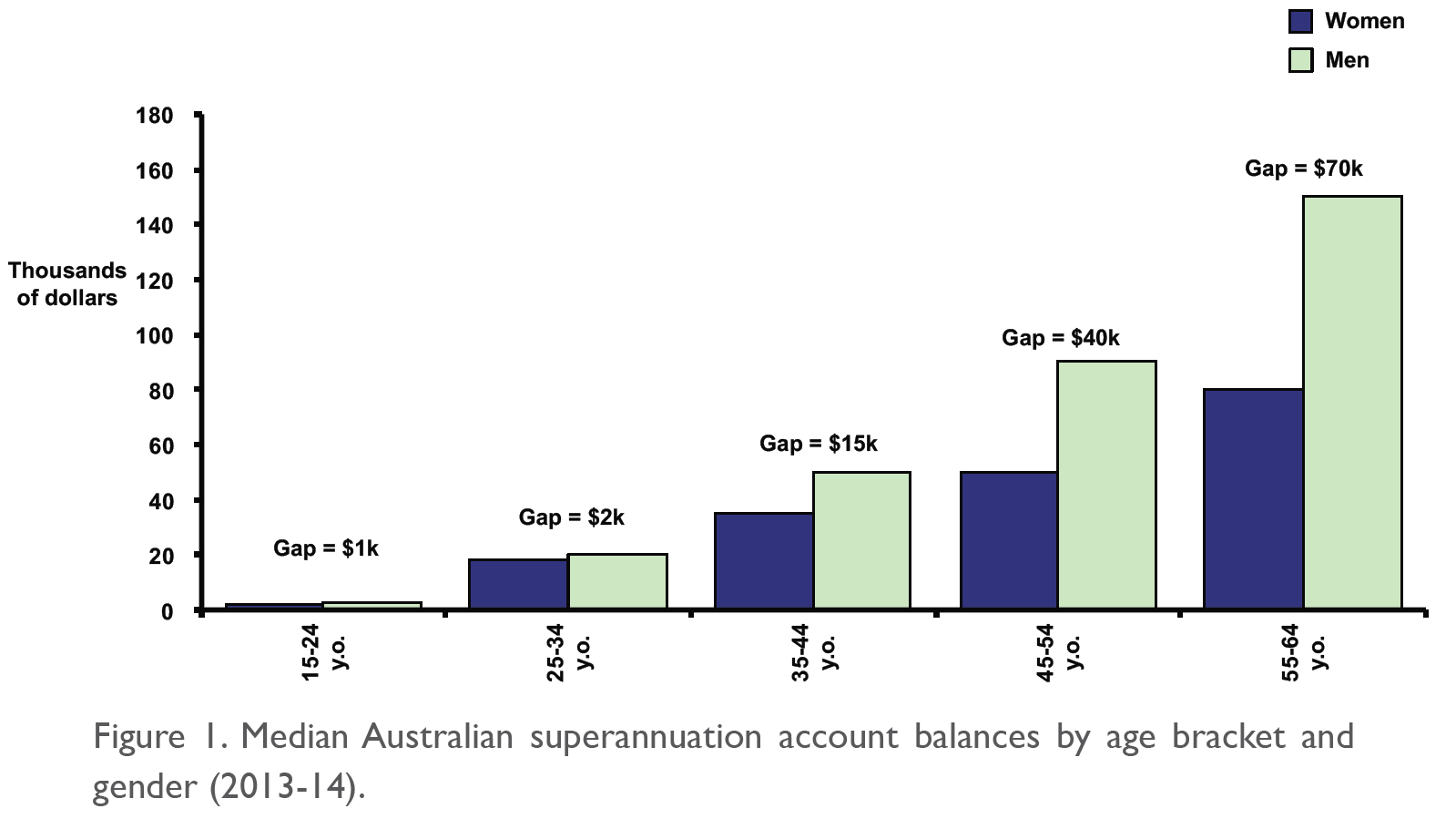For most working Australians, superannuation is the largest asset they will have outside of owning their home. The amount of superannuation that an individual has will largely depend on their employment history and earnings.
How does this relate to divorce and separation?
A recent research report by David Hetherington and Warwick Smith from ‘Per Capita’ has noted how women’s superannuation generally accrues at a lower rate than men’s. See Figure 1 below which highlights data from the Australian Bureau of Statistics.

The report notes that superannuation benefits accrue in direct proportion to income received. It is often the case that women spend less time in the workforce and so do not have the same opportunity as men to contribute towards their superannuation. Reduced time within the workforce is attributable to various factors including taking time off work to care for young children, carer responsibilities such as taking children to and from school and caring for children when they are sick. Other relevant factors include the cost and availability of childcare. All of these contributing factors often lead to an increased likelihood of being engaged in part-time or casual employment. Clearly these factors would also apply to fathers who carry out a primary care role.
How family law lawyers can help?
During a highly stressful divorce or property settlement, individuals may not give proper consideration to future financial stability. This includes consideration of superannuation resources that may be available to support the parties or either of them into retirement. Family law lawyers can assist in explaining how the Family Law Act 1975 gives the Court the power to deal with superannuation interests of spouses (including de facto spouses). Superannuation splitting laws allow superannuation to be divided when a relationship breaks down. Superannuation can be split either by:
- an order of the Family Court or Federal Circuit Court (which can include ‘consent orders’), or
- a superannuation agreement (a financial agreement that deals with a superannuation interest).
Where separating parties do not achieve a settlement that ensures future stability, individuals may find themselves struggling in their retirement plans due to reduced super balances and sale of property. Knowing what you may be entitled to is important in ensuring that any asset distribution (which can include superannuation benefits) is fair. Our specialist family law lawyers are able to give you the guidance you need in regards to your current situation, as well as ensuring the best for your future long term financial position.
Speak to one of them today!
Click here for more information on Property Settlement.
Contact us on 1800 300 170 or email us at familylaw@matthewsfolbigg.com.au
To view the report, please click here.
Disclaimer
Family law situations can be complex and sometimes they can involve serious issues. Information outlined is proposed to provide general guidance only. Due to the seriousness of legal matters as well as the uniqueness of your individual situation, professional advice should be sought. For advice, please contact one of our Family Lawyers.

